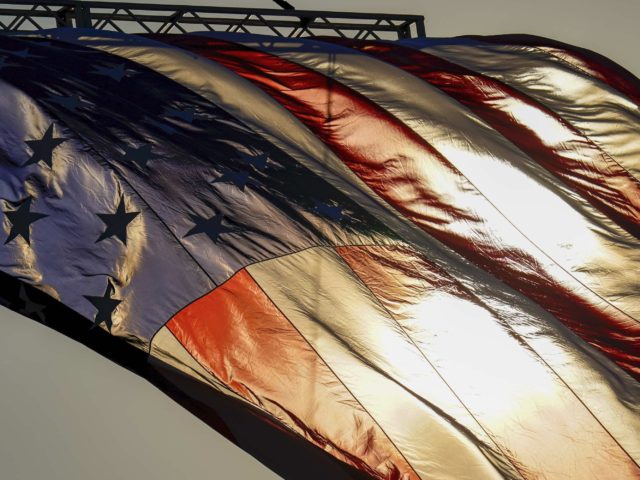As Election Day approaches, I have searched for a way to summarize the 2020 campaign.
I covered the Democratic primary, spending nearly every week on the road for eleven months — and then it all came to a halt after Super Tuesday, with the pandemic.
In 2016, I raced around the country with the traveling press, covering the Trump campaign in the closing weeks, and when it came time to summarize the national mood, I found the perfect metaphor in Trump’s campaign theme song: “You can’t always get what you want, but if you try sometimes, you just might find you get what you need.”
This year is different.
Trump has ditched the Rolling Stones for the Village People, adding his own hilarious, fist-pumping moves to “YMCA.” He took a familiar, overplayed classic and found a way to make it new and relevant.
In an age of fear, division, and uncertainty, Trump is reminding America that we have to find a way to have fun, to celebrate together, and to laugh.
But from afar, there’s something else happening that “YMCA,” charming as it is, doesn’t quite grasp.
As the coronavirus lockdowns began, I reached for my bookshelf and my old copy of Leo Tolstoy’s War and Peace, his epic tale about Napoleon’s invasion of Russia. I read it for the first time in the last recession. Suddenly, it seemed relevant again.
At the risk of reaching for a Russian metaphor — here’s the collusion they’ve been looking for! — Tolstoy has a lot to teach us about the 2020 election.
The basic idea of War and Peace is that history is not the result of the actions of great individuals, but of ordinary people, taken together.
The Russian people, Tolstoy wrote, rose up with “terrible and majestic power … not asking about anyone’s tastes or rules … but with expediency … [and] hammered on the French until the whole invasion was destroyed.”
Prince Andrei Bolkonsky, one of the main characters, chooses to fight with the troops rather than remain an aide at headquarters because he believes it is their spirit, not the decisions of generals, that determines victory.
“[I]n war one battalion is sometimes stronger than a division and sometimes weaker than a company … A battle is won by him who is firmly resolved to win it.”
Tolstoy also describes a phenomenon we might recognize, centuries later, as “fake news.”
An aide arrives to report defeat at the Battle of Borodino: “The troops are in total disarray,” he tells Russian commander-in-chief Mikhail Kutuzov.
“You saw? You saw? … How dare you, my dear sir, say that to me! You know nothing. … The enemy has been repulsed on the left and beaten on the right flank. If you see so poorly, my dear sir, don’t allow yourself to speak of what you don’t know.”
The battle was, in fact, a French victory — but at massive cost to Napoleon’s troops. They went on to occupy Moscow — then faded away, retreating from Russia, beaten by partisans, beaten by the winter, beaten by their own lack of any larger purpose.
The American people have been through an incredible ordeal: impeachment, pandemic, riots.
Coronavirus swept across the whole world, but only in the United States was the opposition trying to oust the president at the time. Only here were the law-abiding confined to their homes while rioters were given free rein in the streets.
It was clear that the riots were not merely an expression of outrage at injustice, but at attempt at revolution — political, economic, and cultural. The Democratic Party and its nominees supported the unrest, and adopted its rallying cry.
They expect, once again, to win — aided by media bias, big tech censorship, and decades of propaganda in the schools.
But polls have begun to shift dramatically, and they may fail to measure what is coming.
Look at the “Trump trains,” the boat parades, the spontaneous demonstrations.
The American people are rising up, with a “terrible and majestic power,” against the rioters and revolutionaries. And unlike the Russians, they are having fun doing it.
“YMCA,” indeed.
Joel B. Pollak is Senior Editor-at-Large at Breitbart News and the host of Breitbart News Sunday on Sirius XM Patriot on Sunday evenings from 7 p.m. to 10 p.m. ET (4 p.m. to 7 p.m. PT). His newest e-book is The Trumpian Virtues: The Lessons and Legacy of Donald Trump’s Presidency. His recent book, RED NOVEMBER, tells the story of the 2020 Democratic presidential primary from a conservative perspective. He is a winner of the 2018 Robert Novak Journalism Alumni Fellowship. Follow him on Twitter at @joelpollak.

COMMENTS
Please let us know if you're having issues with commenting.